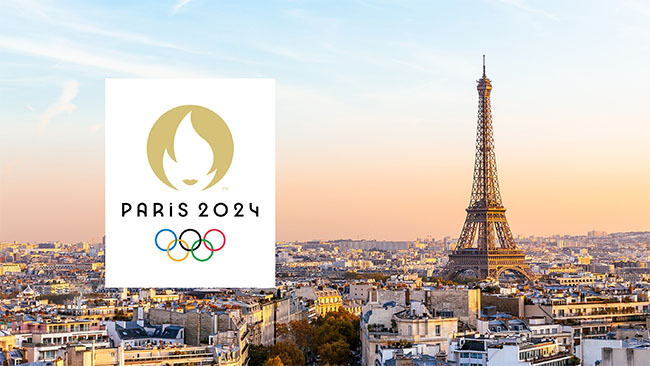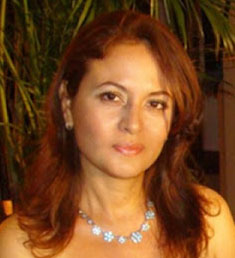The 2024 Olympic Games in France have been characterized by countless controversies. A controversial opening ceremony, the participation of some athletes who raised a stir due to their backgrounds, types of chromosomes, excess hormones, statements about food, comfort of the rooms, Christian and Catholic religious people offended by the staging of the first day, even Pope Bergoglio made statements on the matter, among others.
But despite the controversy, athletes from 204 countries have shed blood, sweat and tears in the 32 disciplines that for a couple of weeks have competed for the gold, silver and bronze medals to return triumphantly to their countries and prepare for the following competitions.
Central America participated with more than 40 athletes and according to some experts they have been the best for the region because they have stood out during this Olympic day in sports that are not always conventional.
The region has always had socio-political difficulties that have prevented athletes from having all the conditions that other countries offer them. In addition, it is an area that struggles with extreme poverty, war conflicts, unemployment and violence. However, since the approval of the respective Olympic committees, the region has maintained its participation with some exceptions that have been due to political issues, such was the case of Nicaragua that did not attend the Seoul 1988 games.
Pope Francis said that “to break down prejudices, to promote esteem where there is contempt and distrust, and friendship where there is hatred.” Although the Central America in conflict now only remains in the history books and in the references, there are still many challenges to overcome. Mainly, the budgetary support destined for sports as an option for children to join any discipline.
Panama, according to Forbes magazine, is the country in the region that invests the most with 65.3 million dollars. According to the media Teletica, Costa Rica has a budget for the year 2024 of 12,000 million colones. The newspaper 19 Digital points out that the budget for sports activities in Nicaragua corresponds to C$177,002,000.00 equivalent to 4.83 million dollars. The Salvadoran government’s “Fiscal Transparency” portal indicates that its budget is $31.4 million dollars for this year. Honduras, the newspaper La Prensa pointed out, had a 100 percent increase for this year, which corresponds to L635 million lempiras.
The budgets are not sufficient to cover all the needs of athletes in each country. According to the article written by PhD. Kristin Scardamalia, for the Hispanic Latino Behavioral Health Center of Excellence, “participation in youth gangs is a serious public health problem with important implications for the young people involved.” After the wars in the 80s, the proliferation of youth gang groups was a problem that involved many agents such as the government, religious entities and non-governmental organizations.
One of the factors, in addition to extreme poverty, was the lack of spaces for recreation, sports and studies. The most extreme case has been the maximum security prisons established by the government of El Salvador. Although the demand for sports spaces is still not sufficient, it has been verified that there are opportunities to practice sports, and the levels of violence are decreasing. There is still a need to invest much more in sports education. Public investment requires that its budget be better distributed to the most popular sectors.
Since the first participation in the Olympics, Central America has won 11 medals to date.
Eduardo López, sports columnist for AS (online sports newspaper) summarizes in the following table all the medals obtained by the Central American participation.
Central American medals in the Olympic Games
Guatemala (1 gold, 1 silver, 1 bronze)
Erick Barrondo | silver | athletics | 20 km walk | London 2012
Jean Pierre Brol | bronze | shooting | men’s trap | Paris 2024
Adriana Ruano | gold | shooting | women’s trap | Paris 2024
Costa Rica (1 gold, 1 silver, 2 bronze)
Silvia Poll | silver | swimming | 200m freestyle | Seoul 1988
Claudia Poll | gold | swimming | 200m freestyle | Atlanta 1996
Claudia Poll | bronze | swimming | 200m freestyle | Sydney 2000
Claudia Poll | bronze | swimming | 400m freestyle | Sydney 2000
Panama (2 gold, 2 bronze)
Lloyd LaBeach | bronze | athletics | 100m flat | London 1948
Lloyd LaBeach | bronze | athletics | 200m flat | London 1948
Irving Saladino | gold | athletics | long jump | Beijing 2008
Atheyna Bylon | gold | boxing | women’s 75kg | Paris 2024
This Sunday, Aug. 11, the games ended. The athletes celebrated their own victories and waved the flag so that millions of citizens from every corner of Central America could feel the emotion.
The closing ceremony did not have so many contradictions among the spectators; the organizing committee, together with the creators of the artistic and cultural element, have put as an ingredient what Pope Francis has summarized in his letter issued by the Olympic Games: “May the Olympic Games in Paris be an unmissable occasion for all those who come from all over the world to discover and appreciate each other, to break down prejudices, to promote esteem where there is contempt and distrust, and friendship where there is hatred.”
Sports culture is a culture of peace, of understanding, of union between peoples without distinctions of language or race. Just as the motto of France says: Liberty, equality, fraternity.
See you in four years!
Writer and poet Madeline Mendieta, is daughter of the late Nicaraguan rock guitarist, René ‘Manito’ Mendieta, RIP.




